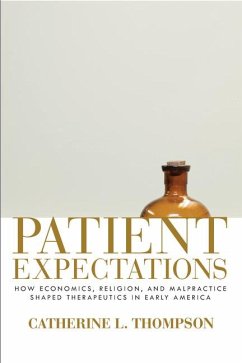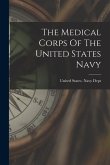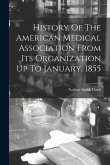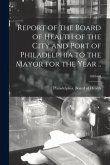During the first half of the nineteenth century a major shift occurred in the medical treatment of illness in the United States, as physicians abandoned the use of "heroic" depletive therapies--the pukes and purges made famous in the 1790s by Dr. Benjamin Rush of Philadelphia--in favor of a let-nature-take-its-course approach to most diseases. Standard histories of American medicine have long attributed this shift to new theories and training methods as well as increased competition from homeopaths and botanical doctors. In this book, Catherine L. Thompson challenges that interpretation by emphasizing the role of patients as active participants in their own health care rather than passive objects of medical treatment. Focusing on Massachusetts, then as now a center of U.S. medical education and practice, Thompson draws on data from patients' journals, medical account ledgers, physicians' daybooks, and court records to link changes in medical treatment to a gradual evolution of patient expectations across varied populations. Specifically, she identifies three developments--the increasing use of cash in medical transactions, growing religious pluralism, and the rise of malpractice suits--as key factors in transforming patients into active medical consumers unwilling to submit to doctors' advice without considering alternatives. By showing how nineteenth-century patients shaped therapeutic practice "through the medical choices they made or didn't make," Thompson's study alters our understanding of American medicine in the past and has implications for its present and future.
Hinweis: Dieser Artikel kann nur an eine deutsche Lieferadresse ausgeliefert werden.
Hinweis: Dieser Artikel kann nur an eine deutsche Lieferadresse ausgeliefert werden.








